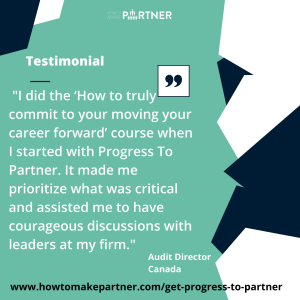Sometimes, the best way to get out of a career rut or to get ahead at work is to move firms. A scary thought, we know, but a move brings with it new opportunities for you to grab by the horns. If moving firms is part of your strategy for getting ahead at work, here’s how you can use it to accelerate your career.
3 steps to propel your career forward once you move firms
Step 1: Take control of your onboarding
Getting ahead at work can sometimes involve less traditional methods such as taking control of your onboarding. While many firms have a refined onboarding process for new hires, you can’t rely on them to completely prepare you for your new role, especially if it is a new-leader transition. To be successful and to accelerate your career in your new firm, you need to take control of your own integration. Here are a few ways to do it:
Understand your role and how you will be evaluated.
Don’t assume that you know what your top goals should be and how best to communicate with your boss and team. Confirm this as early as possible for yourself. Ask them how they prefer to communicate and to give/receive feedback. Inquire about what your most important goals are for the year, how they fit into the firm’s overall objectives and how they will be measured.
Identify early wins
Contrary to what you may think it’s better to carefully select small wins first to accelerate your career when you move firms. You don’t have to try proving yourself by tackling the most ambitious problem imaginable. When you first start a new job, your hiring manager will feel convinced that they hired the best person for the job. It’s then your job to show them that as soon as possible. Start by selecting projects that motivate the team, can be delivered quickly, and ones that deliver operational or financial results.
Build trust with your team
If you’re leading a new team, try to reduce the anxiety that most people will feel when reporting to a new manager. As soon as possible, help them understand your agenda. Layout your vision clearly and enthusiastically, and encourage them to offer their own insights and perspectives. The sooner you make a positive and approachable impression, the sooner you can start building trust and respect and start leading effectively.
 Check out my Progress to Partner Academy (here) – there’s a great course (one of 14!) on how to Excel as a Line Manager.
Check out my Progress to Partner Academy (here) – there’s a great course (one of 14!) on how to Excel as a Line Manager.
Step 2: Network from the moment you sign your new employment contract
To hit the ground running when you move firms, you will need to cultivate allies. Have a network of people who can provide the information, resources, and support that you need to succeed. Many new hires tend to focus on their relationship with their direct manager and those that they manage first. Yet, if you can form relationships with people above, below, and across from you right from the start, this is how you will get ahead at work. These are the relationships that will help you understand how the overall firm works and it’s greater goals so that you can really make an impact.
Take a step forward to be in control of your own career progression in your firm. Sign up to my weekly tips here and you’ll find out what you need to be working on in your career development (and how to make the time for your career development) to progress your career in your firm
Don’t forget to identify the key influencers in the firm too. If you can form strong relationships with these people, they can end up advocating for you and influencing your career greatly when you need it most. Remember you don’t have to wait until you have joined your new firm before you can build your network. Use the time from when you have resigned to start to build your network in your new firm.
Step 3: Adapt to the firm culture as quickly as possible
Getting ahead at work, especially when you move to a new firm, involves you having to learn, understand and adapt to the new firm culture. If you do this as quickly as possible, this initial success will give you a strong foundation to build up from. If you don’t understand and adapt to the new firm culture, you might just end up stuck in your career. This would make moving firms a complete waste of time. If you do understand, however, you can leverage this to accelerate your career. Here are five dimensions of culture that you need to know about:
1. Relationships
How do they cultivate relationships? Do they value collaboration and if so, how much? Is there a certain amount of face-time required to get work done and make important decisions? Ask colleagues how you should approach relationships and observe what they do (e.g. how much time should you spend building a relationship with someone before asking them for help or input on a project?).
2. Communications
Do people communicate through formal channels (e.g. meetings arranged in advance that require preparation) or spontaneously? Is it require of you to have to ‘pre-clear’ any communications upward in the hierarchy or can you simply email senior leaders? Ask your partner and colleagues about the expectations and observe what they do.
3. Decision-making
Are decisions made in real-time while in formal meetings or are they finalised offline? Is there a bias for action or a bias for analysis and consensus? Again observe and ask around about this as soon as you can as these answers will help you to approach things that you want in the right way.
4. Individual vs group perspectives
Is work largely the product of individuals or is it seen as a collaborative effort? It’s important to find this out because the risk and reward differ in both. Moreover, if the work is collaborative, this can make it hard for you to stand out from the rest. Listen for how people discuss work; if they use “we” don’t be the one standing out for not being a team player when you use “I.”
5. Change agents
Is the firm resistant to change? If you’ve been brought in as a new leader and have been told to challenge the status quo, make sure to do two things before you shake things up. Clarify the cultural bounds that you can make changes in and start to build supportive relationships with people who can back up your key decisions. Know which leaders have your back before you propose major changes and test your ideas on a few trusted individuals first to get the best advice.
Move firms and move forward in your career
Getting ahead at work can sometimes mean moving firms. If you choose this route, just make sure that you take control of your onboarding, build the type of lasting relationships that can facilitate your success and learn about the company culture so that you can leverage it to your advantage. Only when you do these three things, can you accelerate your learning curve and ultimately your career!
 We have a great course in our subscriber-only site Progress to Partner called “How to Truly Commit to Moving your Career Forward”. It’s a game-changer and will get you focussed and help you to create the time and space to work a little on your career plan every.single.week.
We have a great course in our subscriber-only site Progress to Partner called “How to Truly Commit to Moving your Career Forward”. It’s a game-changer and will get you focussed and help you to create the time and space to work a little on your career plan every.single.week.
Take a step forward to be in control of your own career progression in your firm. Sign up to my weekly tips here and you’ll find out what you need to be working on in your career development (and how to make the time for your career development) to progress your career in your firm.








